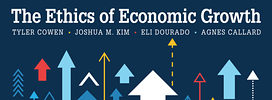I appreciate Agnes’s question on what I have termed “phase changes.” If you see the history of our world as I do in terms of these phase changes, it is interesting to note that the previous phase’s processes don’t stop mattering just because you’ve reached a new phase. When the human economy reached an industrial phase, agriculture did not stop mattering. It changed, got more efficient, and took up a smaller portion of the labor supply, but we produce more food now through agriculture to feed a larger human population than ever before. In the same way, the proliferation of life that came out of the Cambrian explosion hasn’t stopped, nor would we want it to. Evolution still happens, and that’s likely for the best as organisms can adapt to changing conditions. And the solar influx that provided the negative local entropy to allow life to originate on our planet in the first place thankfully continues—I think we can agree that is a good thing.
I suspect future phases will behave similarly. They will be bigger, in a sense. But it is an accretion of the underpinning process of each phase that drives the whole thing forward. For example, if the next phase is the dissemination of human civilization throughout the cosmos, it will likely be aided by economic growth that provides and continually improves the technological capability for humans to survive in the harsh environments. I do want to see what comes next, but if the pattern holds, economic growth will still matter. In the meantime, growth is still the most beautiful thing going in virtue of it driving us to the next phase. If there is a next phase where economic growth is no longer the biggest, most beautiful phenomenon on which to remark, well that would be something to see, and it is in that sense alone that, yes, I impatiently want the era of economic growth to come to an end.

